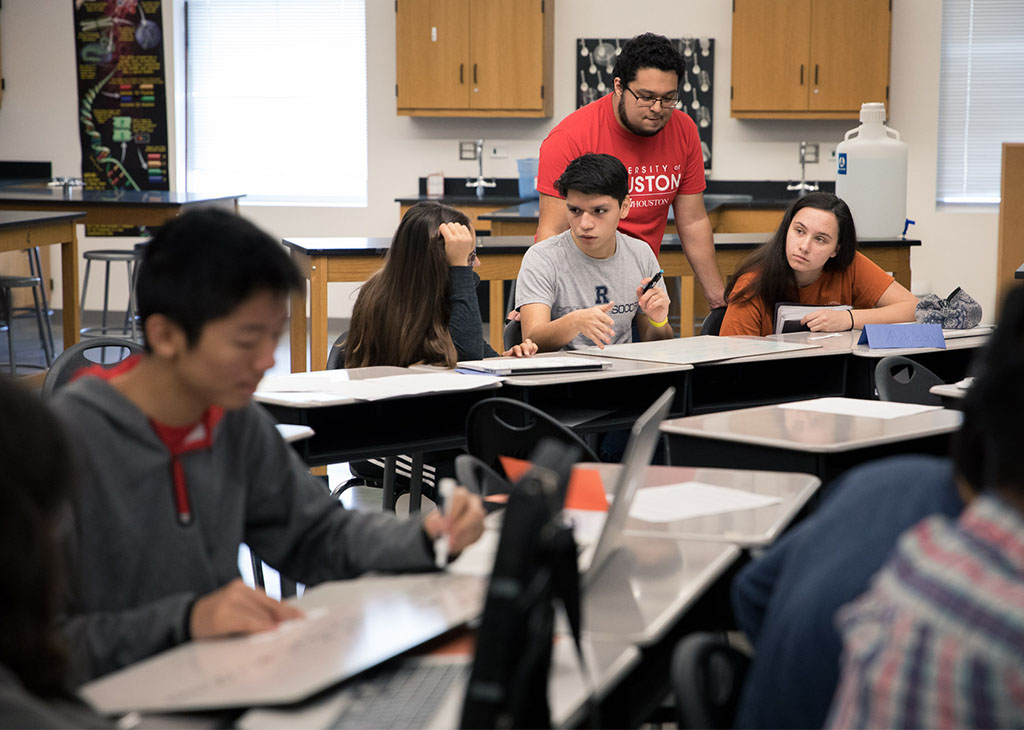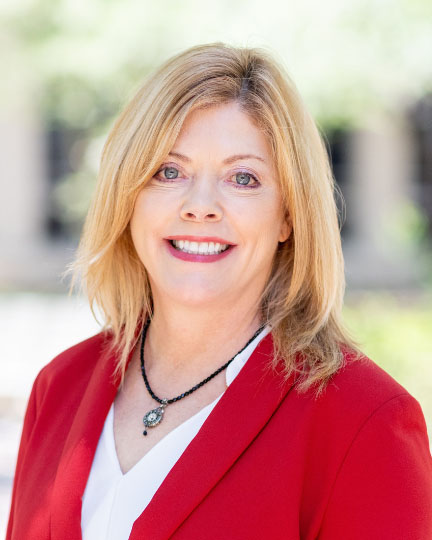Program Invests in the Long-Term Success and Retention of STEM Educators
teachHOUSTON, the University of Houston’s renowned STEM teacher preparation program in the College of Natural Sciences and Mathematics, has received a $3 million award from the National Science Foundation to help address a STEM teacher shortage and retention crisis.

The new program, Developing STEM Teacher Leaders in Culturally Responsive Classroom Management, Engineering Design and Induction, is a partnership between UH, the National Math and Science Initiative and several Houston-area high-need school districts including Pasadena, Alief and Spring Branch ISDs.
“We are thrilled to launch this new program that will not only address the immediate STEM teacher shortage but also invests in the long-term success and retention of STEM educators,” said Paige Evans, clinical professor of mathematics and co-director of teachHOUSTON, a partnership of the UH College of Natural Sciences and Mathematics and College of Education.

Through this grant, teachHOUSTON will select 15 current STEM teachers from its partner school districts to serve as Master Teacher Fellows and train them in CRCM, a strategy that involves consideration of students’ backgrounds, cultures, learning styles and past experiences to create inclusive and supportive learning environments for all students. Each fellow will receive $100,000 in salary supplements over five years.
Recruitment and retention of qualified STEM teachers has been a growing problem in Texas, and across the country. According to the U.S. Department of Education, more than half of states report a deficit in STEM teachers with the shortage more pronounced in low-income schools. Evans believes this new program can help to reverse that trend.
“Not only will these fellows lead professional development at their own schools, but they’ll work with pre-service teachers at UH and new teachers who are early in their careers,” Evans said. ”Our hope is that by providing this support and mentorship, we can build stronger STEM pipelines to underserved campuses and keep quality STEM teachers there for years to come.”
This is the latest in a series of major NSF awards for teachHOUSTON. Last fall, it received $1.6 million for the RESET in STEM program, an idea borne from the successful STEM RISE program which gives economically and socially disadvantaged students access to STEM education.
Since its founding in 2007, the teachHOUSTON program has produced nearly 600 certified STEM teachers, 95% teaching in the greater Houston area and a strong, five-year retention rate above 80%. It is that track record of success Evans credits for the continued support from NSF.
“Our amazing teachers are doing great things and making a huge impact in our community,” Evans said. “Their enthusiasm gets students more excited about science and math, and maybe pushes them to pursue STEM in college or as a career.”
Evans is the principal investigator for the project. Co-PIs on the team are Amanda Campos and Ramona Mateer, Department of Mathematics/teachHOUSTON; Jerrod Henderson, Cullen College of Engineering; and Virginia Snodgrass Rangel, College of Education.